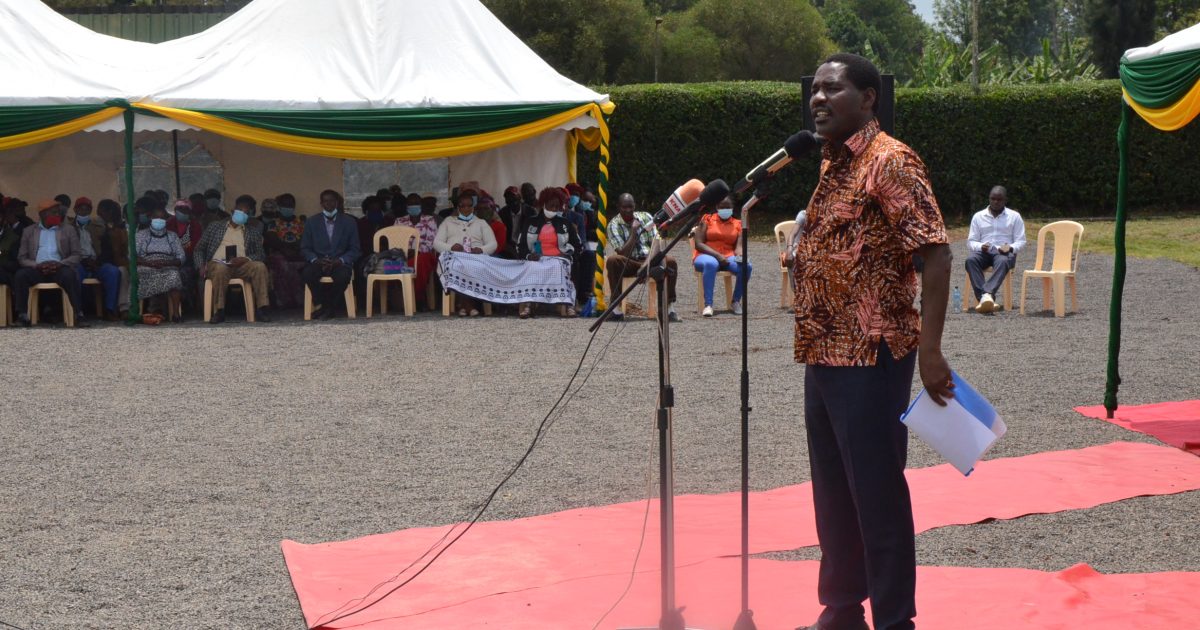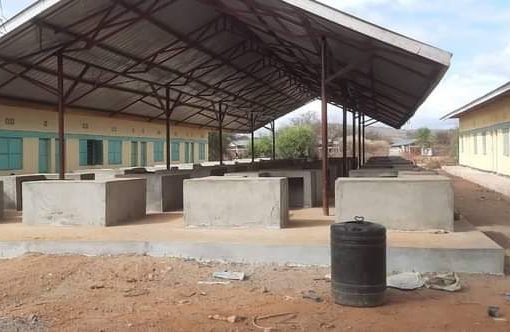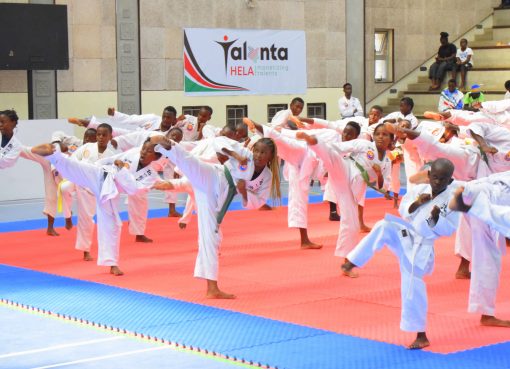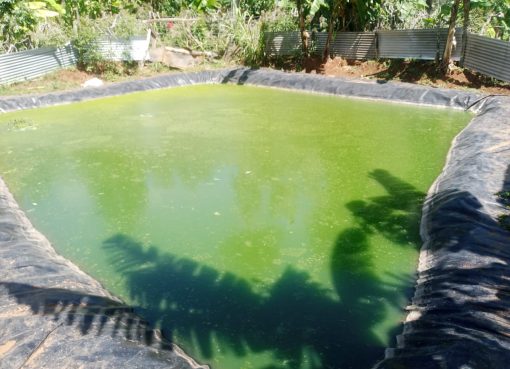Small holder tea farmers will from next year receive their bonus payout in June and not in October as has been the tradition, Agriculture CS Peter Munya has said.
Speaking in Iria-ini tea factory in Othaya, Nyeri, where he engaged local farmers on the on-going reforms in the sector, the CS said it was unfair for tea factories to withhold money from farmers for four months yet the financial year for all factories ends in June.
“President Uhuru Kenyatta and I have agreed that you will be paid early so that they (factories) can close the accounting books after that and start a fresh year. We have noticed that these people have been keeping your money in bank accounts to accrue interest for their benefit,” he said.
The move follows the decision by the Ministry of Agriculture and the Kenya Tea Development Agency (KTDA) to set a minimum price reserve which would improve the monthly payout as well as the bonus for farmers in 2021/2022 financial year and was part of the on-going reforms in the tea-sub sector.
Bonus is the second and final payment paid to farmers in the month of October. Farmers first receive a mini-bonus in the month of July every year. The rates for these two payouts vary from one factory to another.
The CS also took his time to walk the farmers through the reforms that his ministry is implementing saying their main aim was to maximise their earnings and to seal loopholes that tea factories had previously used to burden the tea farmers with unnecessary expenses.
He said that in the next phase of reforms, they would be working towards transforming the tea market in Mombasa from a buyer to a seller driven market by setting up a tea laboratory which would aid in correcting the opaque system where tea brokers set the price without considering the quality of tea. Once in place, the laboratory will help grade the quality of tea before the seller can set the selling price.
“Unlike coffee, the tea market in Mombasa has been buyer driven for a long time because there is no laboratory in Mombasa to scientifically determine the quality of tea. Going forward, we want prices to be driven by quality so that even the farmer can invest in quality because good quality tea is bought at a higher price,” said the CS.
There are also proposals to reduce operational costs by factories which include transportation and storage charges. Should things go as planned, the CS says that once complete, the yard at Inland Container Depot (ICD) in Nairobi would act as a store for the tea at a minimal fee before it is transported to the buyer.
Already plans are underway for tea to be transported through the Standard Gauge Railway starting November this year with the CS revealing that negotiations for concessional rates with SGR management were still on course.
“We have agreed that private transporters will do the first mile of delivering tea from the factory to the ICD in Nairobi. In the long term, we want to ensure that the ICD project in Nairobi is completed so that the tea leaves ICD when it is being delivered to the buyer. The cost of storing tea will equally go down so that again we increase the farmers’ earnings,” he said.
Munya also announced plans by the ministry to set up a Tea Stabilization Fund which will cushion the farmer by paying top-ups when the tea global tea prices are not favorable.
The fund will also rationalize the cost of farm inputs and set a standard interest rate for loans taken up by farmers from lending institutions. Currently, tea farmers who have taken up loans with KTDA’s Green Fedha Microfinance are repaying their loans at a 20 per cent interest rate but the CS has directed that the rates be reduced to 8 per cent starting December this year.
“The proposal to set up the fund has already been presented to the Cabinet for approval. After it has been operationalized, our target is to have the interest rates reduced to 5 per cent,” said Munya.
During the tour, the CS was accompanied by the KDTA board members among them David Ichoho, the agency’s chairman and officials of the Tea Board.
By Esther Mwangi





